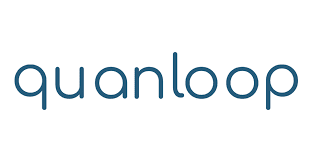Quanloop borrows money from investors at the following rates:
- 6.5% to invest in “low risk” loans with a loan to value (LTV) of up to 55%
- 9.5% to invest in “medium risk” loans with an LTV of up to 85%
- 13.9% to invest in “high risk” loans with an LTV of higher than 85% or entirely unsecured
Quanloop is currently running Facebook ads claiming “Quanloop will pay you at a far better rate than any bank has to offer”.
Quanloop restricts the amounts that can be invested in the “high risk” plan to 33% and the “medium risk” to 50% of the remainder, meaning that the maximum “target interest” (for 33% in each) is 10%.
On its website Quanloop claims, at time of writing, that “Today our investors are earning 14.85% [annualised] average profit”. I was unable to get my head around how this squares with its current offer with a maximum target of 10% – bearing in mind that not all investors will opt for the maximum risk and maximum target return. On the same website it claims “to be able to add over 15% annual profit to your money”.
Who are Quanloop?
Quanloop is an Estonian company registered with the Estonian financial regulator as a “limited partnership fund”. It is headed by Valentin Ivanov.
How safe is the investment?
Quanloop claims to offer “low risk” investments and that “…your money is guaranteed by the total assets of the fund, first – by the loan you have financed and second – by the other investments and rights Quanloop has.”
In reality, as with any loan to an individual company, Quanloop is an inherently high risk investment. Regardless of what Quanloop says it is doing with the money, whether it is investing in loans with less than 55% LTV or investing in unsecured loans, a loan to an individual company is inherently high risk, especially an obscure unlisted company in Estonia.
Secured lending is not risk-free as there is a risk that if the underlying borrower defaults, the security cannot be sold for enough to cover the loan.
Investors in asset-backed loans have been known to lose 100% of their money when it turned out that there were not enough assets left to pay investors after paying the insolvency administrator (who always stands first in the queue).
We are not in any sense implying that the same will happen to investors in Quanloop, only illustrating the risk that is inherent in any loan note even when it is a secured loan.
If investors plan to rely on this security, it is essential that they hire professional due diligence specialists (working for themselves, not Quanloop) to confirm that in the event of a default, the assets of Quanloop would be valuable and liquid enough to compensate all investors. Investors should not simply rely on what Quanloop tells them about their assets.
Quanloop claims to be better than a no-risk deposit account, describes its investments as “low risk”, and over-eggs the fact that its loans are secured, even though this does not change the fact that loaning your money to an individual company has an inherent possibility of up to 100% loss.
All of this is misleading, as confirmed by the Financial Conduct Authority. (UK regulation is what matters here, given that Quanloop is sourcing investment from the UK public via Facebook ads.)
Should I invest in Quanloop?
This blog does not give financial advice. The following are statements of publicly available facts or widely accepted investment principles, not a personalised recommendation. Investors should consult a regulated independent financial adviser if they are in any doubt.
As with any individual loan note to an unlisted startup company, this investment is only suitable for sophisticated and/or high net worth investors who have a substantial existing portfolio and are prepared to risk 100% loss of their money.
Any investment claiming to be able “to add over 15% annual profit to your money” is inherently very high risk. As an individual, illiquid security with a risk of total and permanent loss, lending money to Quanloop is much higher risk than a mainstream diversified stockmarket fund.
Before investing investors should ask themselves:
- How would I feel if the investment defaulted and I lost 100% of my money?
- Do I have a sufficiently large portfolio that the loss of 100% of my investment would not damage me financially?
- Have I conducted due diligence to ensure the asset-backed security can be relied on?
If you are looking for a “guaranteed” investment, you should not invest in loans to Estonian companies with a risk of 100% loss.

